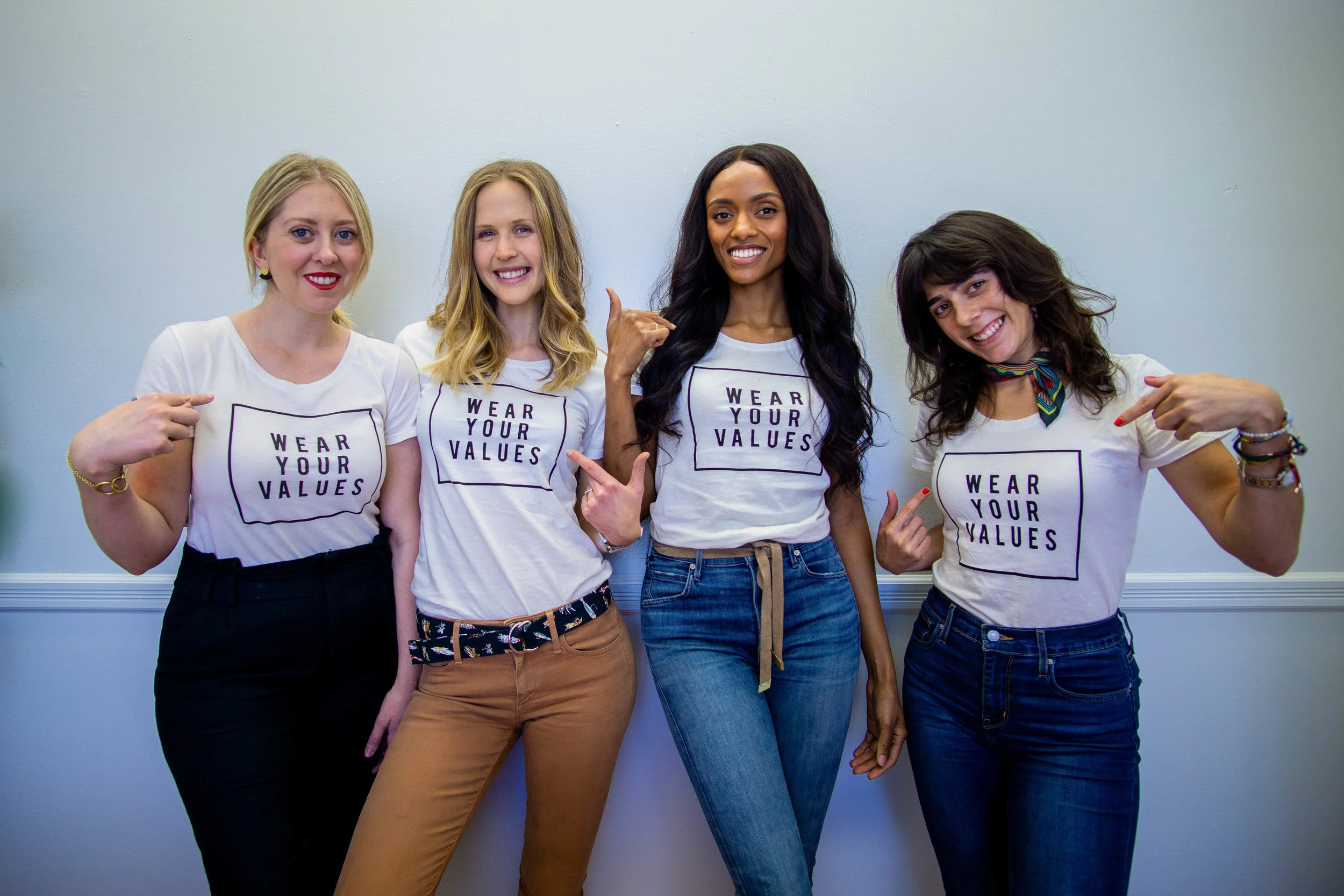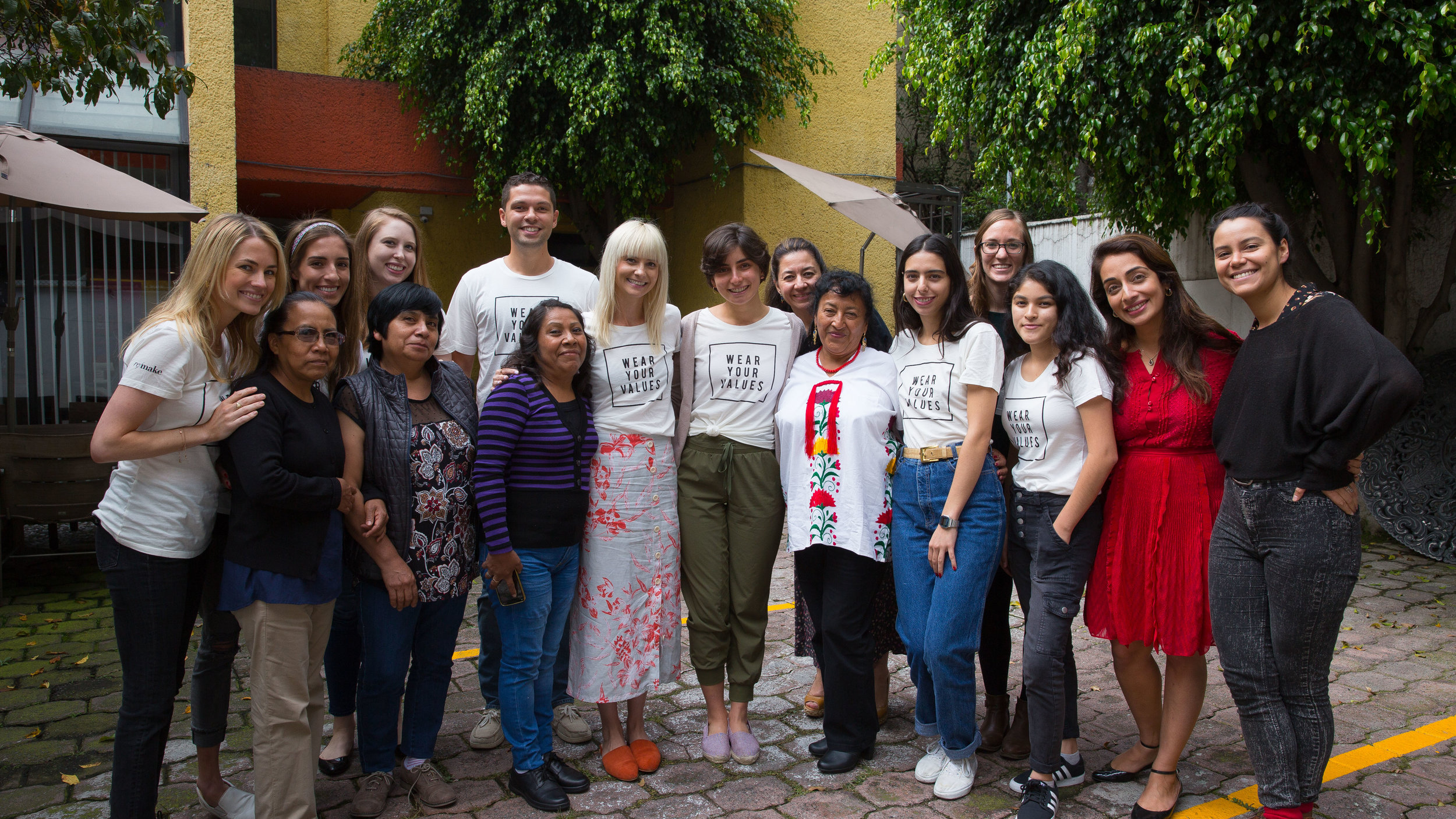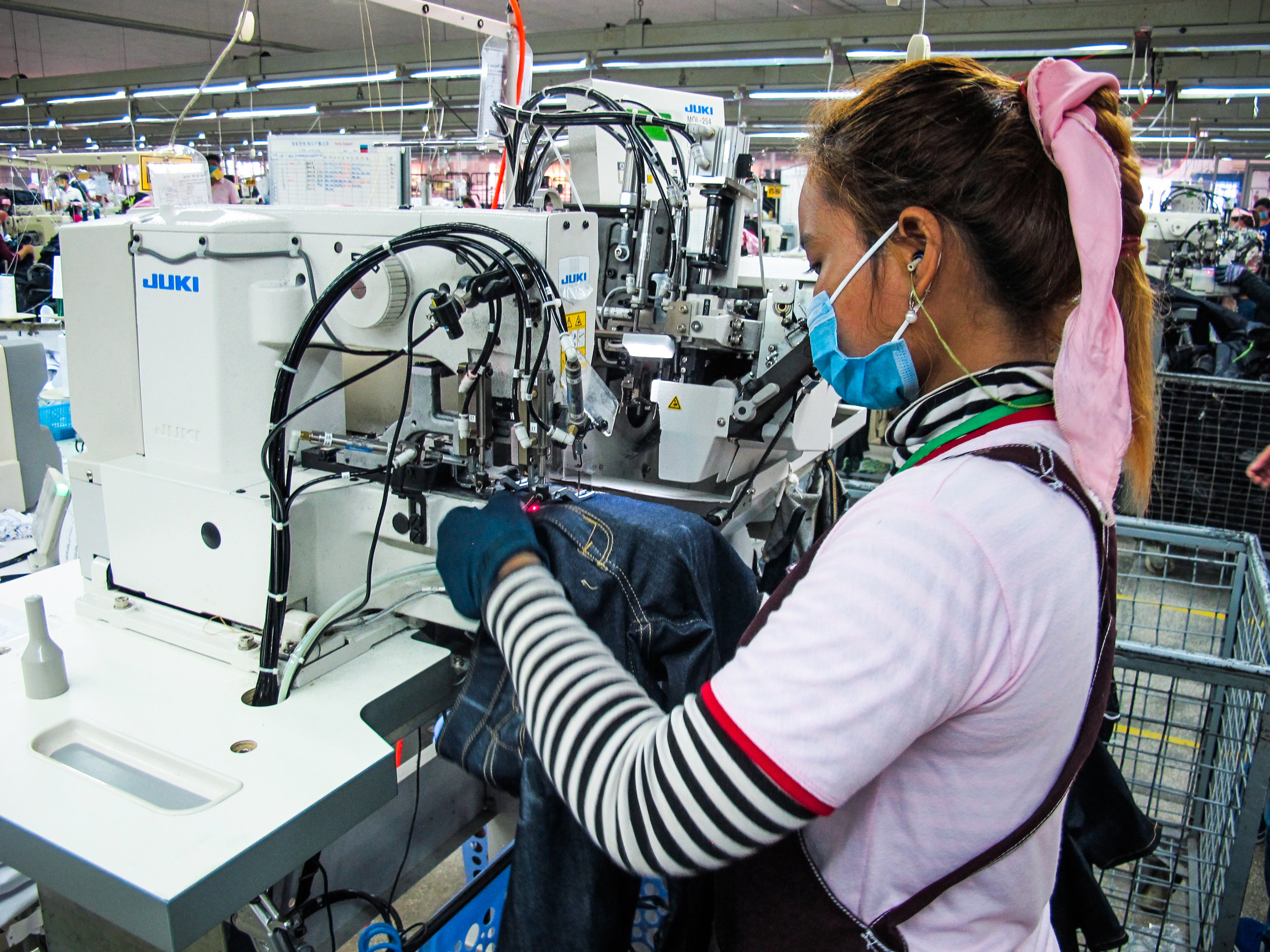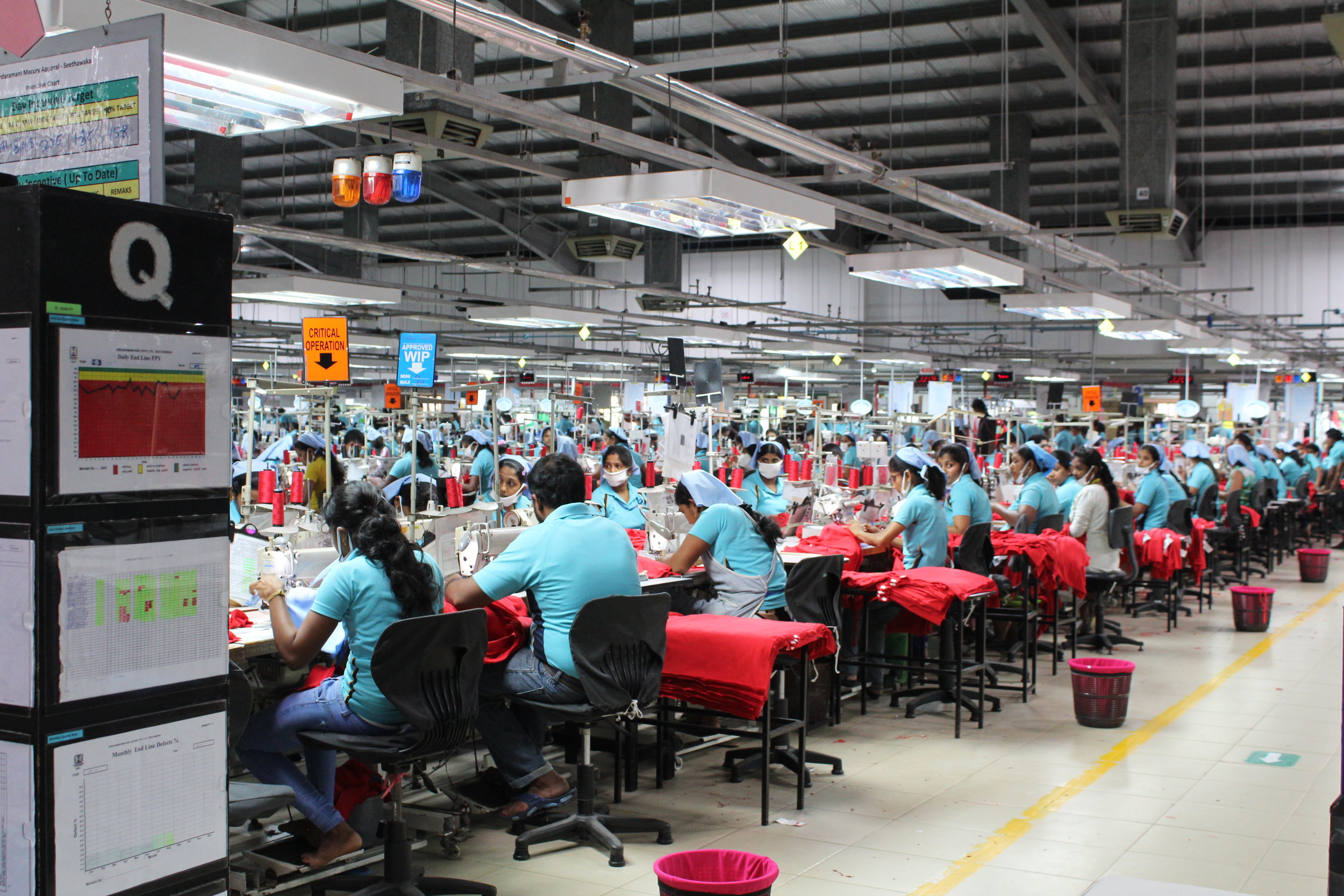Interview with Ayesha Barenbiat, the founder of Remake
I had the pleasure of interviewing Ayesha Barenblat , the Founder of Remake, whose mission is to ignite a conscious consumer movement to make fashion a force for good. I love their focus on the millennial woman; urging her to buy better. Check out their awesome and digestible tips for the “Everyday Person” to make more sustainable fashion choices.
Ayesha, it is such an honor to meet you! As the founder of Remake, a nonprofit that is truly turning fashion into a force for good, you embody going Clothes-LESS at its best! Can you explain Remake to my "Everyday Eco-Habit Peeps"?’
Remake is a nonprofit that believes fashion can be a force for good. With our first hand documentary footage and stories, Remake makes the invisible women who power the fashion industry visible. In addition, we share facts the fashion industry doesn’t want you to know and provide a solution on how to break up with fast fashion through our curated edits, featuring products from our Remake-approved brands list that respects women and the planet. Since our beginning, we’ve been urging people to think about those who make our clothes with our #WearYourValues campaign.
What inspired you to start Remake? What environmental and ethical issues do you hope to change through Remake?
I grew up in Karachi, Pakistan, around family that ran clothing factories. Early on, I understood the power of these jobs to lift young women out of poverty. The fashion supply chain is one of the few industries that employs mostly women.
While completing my masters with a focus on sustainability at UC Berkeley, I was struck by the conflicting pressures fashion retailers place on factories, to make our clothes sooner, faster and yet somehow respect people and our planet. For my graduating thesis I went undercover in factories in Karachi and got to know the amazing and resilient women, largely absent from our collective consciousness. Trade agreements had failed them. They worked long and hard hours and yet remained trapped in poverty. My thesis work changed the course of my career and sparked a lifelong quest to improve the wellbeing of the 75+ million women who make our clothes.
For the last decade I have been working across brands, manufacturers and governments to improve the fashion industry’s commitment to her. Then Rana Plaza happened and 1,134 people lost their lives. I watched the footage with growing horror and felt that I had to do more, sooner and faster. Working on the inside of the industry, I had always thought there was a missing piece of the puzzle - shoppers.
So I took a risk, left my wonderful UN job to found Remake, whose mission is to ignite a conscious consumer movement to make fashion a force for good. I believe in the power of hopeful storytelling because behavioral science shows that a pain-centered narrative does not move people. We become numb to bad news - be it sweatshop workers or refugees faraway. It’s hard for people to make a connection to these stories with their daily life.
I have spent the last decade having meals, laughing, talking and being awestruck by the women who make our clothes. These were not victims as the media paints them. These are badass women often supporting upward of 5+ family members, leaving the safety of their villages to enter the big bad world of city life, often at the tender age of 19. I felt that these stories, of the millennial maker, could spark a more empathic connection with millennial shoppers. With the power of film, virtual reality and social media we can connect in ways that were never possible before. I hope that the story told differently, may finally seal her in our collective consciousness, so we can start to ask more about her and buy better.
At Remake, we’re focused on engaging with the millennial woman; urging her to buy better. Studies and our own research show that she is poised to shop differently, as long as she is not compromising on style and is able to discover sustainable fashion easily. We strive to make the discovery of conscious fashion a joyful and easy process for her. In terms of product we are careful to vet not just vigorously for sustainability but for style. Our edits include a mix of high-end and affordable options. We also run workshops and stories on how to join the movement on a budget – be it exploring rental, consignment or swap party options.
Our partnerships with Parsons and CCA are another way that we are ensuring young and emerging designers think about human centered design. Too often what we deal with from a sustainability standpoint is a design mess. We believe engaging young designers just as they are entering their career to think about these issues is really important.
I am often struck by how non diverse the conferences and conversations are around sustainable fashion, even though this industry is powered by women of color. I even wrote an article about this,Sustainable Fashion’s Race Problem. For us our documentary work where we pass the mic back to the women and communities most impacted by fashion is one way to broaden the conversation. We need to bring her back into our collective consciousness.
How can an "Everyday Person" join the Remake Movement? What resources does Remake have that can help us to Go Clothes-LESS?
There are many ways, one can become a Remaker!
Follow us on social media @remakeourworld and join the conversation on Twitter, Facebook, Pinterest, and Instagram.
Share our stories and films to help spread the work about the women who make our clothes.
Sign up for our newsletter to be in the know about our Movement.
Tell your friends why they should become a Remaker.
Join our Ambassador program and start hosting clothing swaps and panels, and premieres.
Send us an email with your thoughts and/or questions about sustainable fashion and makers.
Donate to help us build a more conscious connected fashion industry.
Vote with your wallet by checking out our edits featuring brands that respect women and our planet.
Some wonderful resources include:
Our Guide to host your own Wear Your Values Workshop
Facts the fashion industry does not want you to know
Our Wallet Guide
One of our favorite reads, Overdressed: The Shockingly High Cost of Cheap Fashion’Our list of top sustainable fashion reads
One of our favorite podcasts to listen to, Conscious Chatter by Kestrel Jenkins
What are your favorite Go-To pieces of eco-fashion? Who are your favorite eco-fashion brands?
There are wonderful sustainable brands that are popping up every day! I love PACT’s organic soft intimates, Patagonia for everlasting outdoor pieces, Nudie Jeans for denim that’s pro-makers and fits great and Mara Hoffman for my favorite going out dress. I am also a regular customer at Rent The Runway. I do a lot of talks and events and it is a way for me to look fresh without buying more.
If you could give just one piece of Eco-Habit advice to an “Everyday Person” who wants to remake their fashion choices to be more sustainable, what would it be?
Changing your fashion habits can be done step by step. Don’t get overwhelmed! There are big and small ways, regardless of your wallet size, to be involved in the Movement. Some Ideas include:
Marie Kondo your closet: take stock of what you own. Are piles of clothes sitting there and making you unhappy? Only keep what you think you will wear at least 30 times and host a swap party for the rest.
30 wear rule: the next time you want to buy something consider this: will you wear it at least 30 times? if not, best to walk away. Oh and if it costs less than your favorite cup of coffee? know that women were exploited in the making of it and also walk away.
Budget-friendly ideas: check out vintage, rental or consignment options. Consider shopping in a good friend or siblings closet.
Loved clothes last: care for your clothes like the good friends that they are. Wash on cold, line dry, skip the dry cleaner and mend.
Invest in quality not quantity: check out our platform for inspiration on fewer, better fashion pieces that are good for women and our planet.





